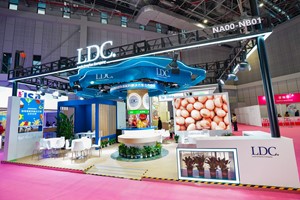Researchers at Chulalongkorn University, in collaboration with Ampol Food Processing Co. Ltd., have introduced a pioneering solution to transform coconut jelly waste into a valuable product known as Cello-gum. This innovative product, derived from bacterial cellulose (BC), holds immense promise for various industries including food additives, medicine, and cosmetics.
Cello-gum is developed through a meticulous process wherein bacteria, specifically Acetobacter xylinum, are cultured and nourished with coconut water to produce BC fibers. While coconut jelly scraps serve as the primary source material, other agricultural waste such as bagasse, corn, and pineapple may also be incorporated, thus enhancing its versatility.
The advantages of Cello-gum are multifaceted. Firstly, it presents a natural and safe alternative, derived from coconut jelly, exhibiting non-toxic properties. Secondly, its functional attributes are noteworthy, boasting strong mechanical properties, high water absorption capabilities, and biodegradability. Moreover, the economic benefits of Cello-gum are substantial, as it reduces dependence on costly imported additives, thereby potentially saving Thailand over 10 billion baht annually.
The potential applications of Cello-gum span across various industries. In the food sector, it can serve as thickeners and texture enhancers, offering comparable or even superior qualities to existing additives in terms of purity and efficiency. Additionally, its utility extends to medicine and cosmetics, where it can be employed in formulations such as binders in tablets and hydrogels for skincare products.
Recognizing the significance of this innovation, efforts are underway for commercialization through Bionext, a spin-off company. Furthermore, plans include expanding into other applications and seeking partnerships for large-scale production facilities and engineering expertise.
Noteworthy recognition has been received for this project, including being a finalist in the Rising Star Project by Thailand's Ministry of Higher Education in 2020, and winning the Angel Fund project in 2023 for commercialization endeavors.
In conclusion, Cello-gum represents a significant stride towards sustainability and resource optimization, contributing to a circular economy by minimizing waste and repurposing valuable resources. With its manifold advantages and promising future prospects, this innovation holds the potential to revolutionize various industries while addressing pressing environmental concerns.
www.chula.ac.th













